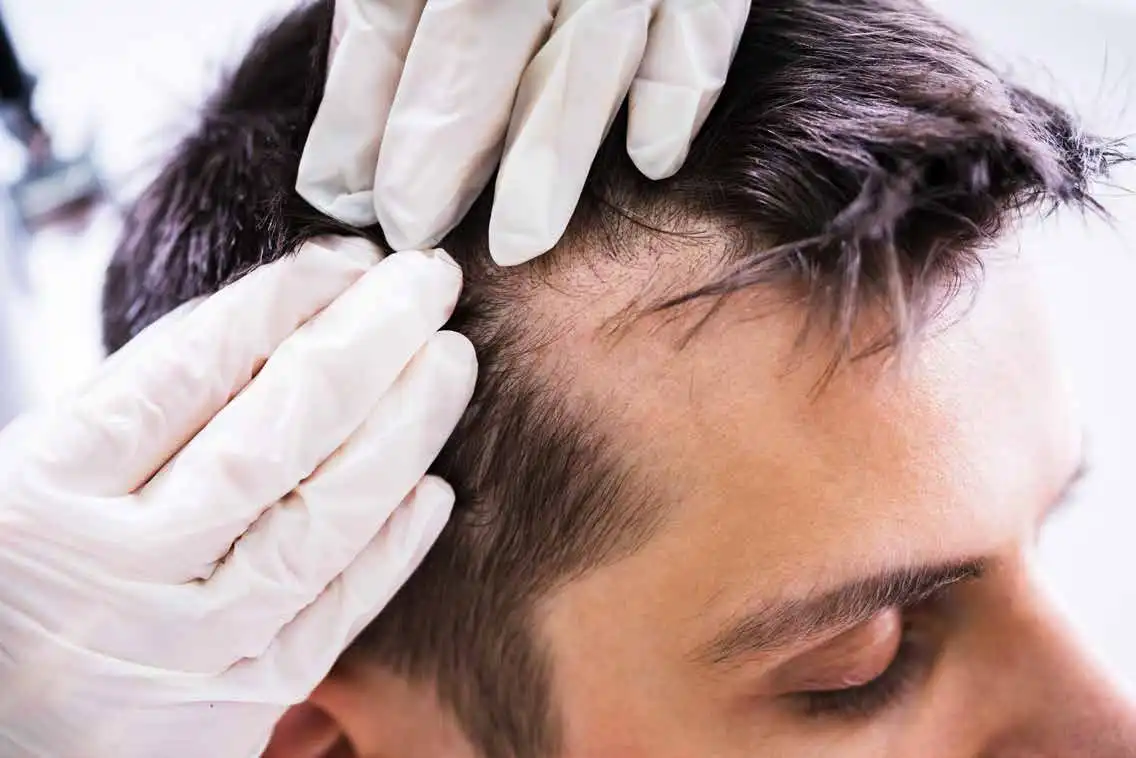Hair loss is a condition also known as alopecia. It can affect hair not only on the head but also on the rest of the body, and it may be temporary or permanent. It is mainly hereditary, but it can also be the result of hormonal changes, medical conditions, or a typical sign of ageing. Anyone can experience hair loss, but it is far more common in men. Hereditary hair loss due to age is the most common cause. The starting age and hair loss rate vary from patient to patient. Some patients lose all their hair during puberty, while in other cases, hair has been gradually thinning for decades. The family history of hair loss does not necessarily determine the pattern of each individual’s hair loss.

Hair Loss
Causes of hair loss and rate of recurrence.
People generally lose 50 to 100 hair follicles a day. Usually, this does not cause any concern as the hair that is lost is regenerated by the hair follicles that remain healthy. Hair loss requires treatment when the number of hairs that are lost is greater than the number of hairs that are regenerated every day. Androgenic alopecia is a genetically defined condition. Androgens are considered to be necessary for the progression of androgenic alopecia as they have never been found in pre-pubertal male castrates. The development of androgenic alopecia is inhibited if males are castrated post-pubertal. It has been argued that this is a dominant hereditary disorder with varying forms and degrees. However, hair loss may also be considered a multi-genic genetic condition. Androgenic alopecia is a widespread disorder, affecting approximately 50% of men and perhaps as many women after the age of 40. About 13% of premenopausal women are reported to have some evidence of androgenic alopecia. The cases of androgenic alopecia are significantly increased after menopause and may affect up to 75% of women over 65. The rate and the extent of hair loss are different for each patient, and research has indicated no connection to a particular diet, hairstyle, infection, or a hormonal disorder.

Androgenetic Alopecia
This is a genetically determined progressive disorder, leading to the gradual conversion of normal hair into intermediate hair and eventually into down. Patients with androgenic alopecia have a reduced ratio of normal to down hair of approximately 1:4. Patients with this disorder usually develop the typical hair loss pattern.
In androgenic alopecia, studies have demonstrated the automatic renewal of the hair follicle via keratinocytes – stem cells located in the bulge area of the hair follicle. This is a genetically determined condition in alignment with studies demonstrating that the strongest link to androgenic alopecia is present in 3q26 on the X chromosome.


Today, science enables us to offer patients a perfectly natural look. We have improved our understanding of hair loss mechanisms, and we are constantly perfecting treatments. It is very rewarding for me to give my patients their youthful appearance back!
Dr. Zontos
The problem of Hair Loss
The style and length of the hair often influence the psychology of the patients as they define how they see themselves. Hair loss often generates negative feelings and low confidence. Fortunately, there are now hair-loss treatments that restore not only the hair but also the patient’s positive emotions and self-esteem.
The realistic solution
Dr Zontos can accurately assess the problem using FOLLYSIS©, a pioneering system for the diagnosis and monitoring of hair loss. This innovative system takes into account the density and thickness of the hair and also the rate of hair loss, which accurately assesses the problem and the harvesting capacity of the donor hair area. With the assistance of FOLLYSIS©, Dr Zontos reliably proposes realistic solutions that meet the real needs of each patient.
At the same time, the patient’s history and any potential disease that may affect the safety and success of the operation are closely monitored. It should be noted that patients receiving anticoagulant treatment are not allowed to have a hair transplant. It is essential that patients suffering from a disease have an evaluation from a specialist doctor prior to any hair procedure.

Time to book an appointment
It is imperative that you seek advice from your family doctor if persistent hair loss causes stress and negative feelings, and you wish to find an appropriate treatment. Talk to your doctor if you notice sudden or unusual hair loss when you comb or wash your hair. Sudden hair loss may be the sign of an underlying medical condition that requires treatment before any other cosmetic hair solutions can be found.
Before you choose a treatment, discuss with Dr Zontos about the cause of your hair loss. He will provide the optimum solutions that are appropriate in your case.